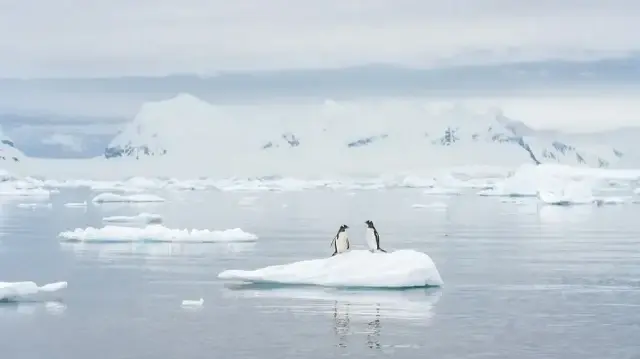Antarctic glacier retreats 8 kilometers in two months, study finds

A new study published in Nature Geoscience reveals that Antarctica's Hektoria Glacier retreated 8.2 kilometers in just two months, the fastest glacier retreat ever recorded. Researchers found the collapse was caused by ice plain calving rather than atmospheric warming, suggesting other flat-based glaciers may be similarly vulnerable.
A study published Monday in Nature Geoscience documents the fastest glacier retreat ever recorded, with Antarctica's Hektoria Glacier losing 8.2 kilometers (5 miles) of length during a two-month period in late 2022. The research reveals that between November and December 2022, the glacier on the eastern Antarctic Peninsula underwent dramatic collapse, retreating nearly half its total length in an exceptionally short timeframe.
Unprecedented Retreat Pattern
The Hektoria Glacier experienced a total loss of approximately 25 kilometers (15.5 miles) between January 2022 and March 2023, far exceeding typical glacial retreat rates. Scientists determined that this rapid collapse resulted not from ocean or atmospheric temperature increases as typically expected, but from a process called ice plain calving, where ice breaks away from flat, weakly grounded sections of a glacier.
Scientific Implications and Mechanisms
The findings challenge previous assumptions about glacial stability, suggesting that glaciers resting on so-called ice plains may be significantly more vulnerable to sudden collapse than previously understood. This discovery indicates that the physical structure and grounding of glaciers may play a more critical role in their stability than direct temperature influences alone, requiring revised assessment methods for predicting glacial behavior.
Global Sea Level Concerns
Researchers warned that similar geological conditions make other Antarctic glaciers potentially susceptible to comparable rapid collapse events. This vulnerability has significant implications for global sea level projections, as sudden large-scale glacial disintegration could accelerate sea level rise beyond current estimates, affecting coastal communities worldwide and necessitating updated climate models.
Reklam yükleniyor...
Reklam yükleniyor...







Comments you share on our site are a valuable resource for other users. Please be respectful of different opinions and other users. Avoid using rude, aggressive, derogatory, or discriminatory language.